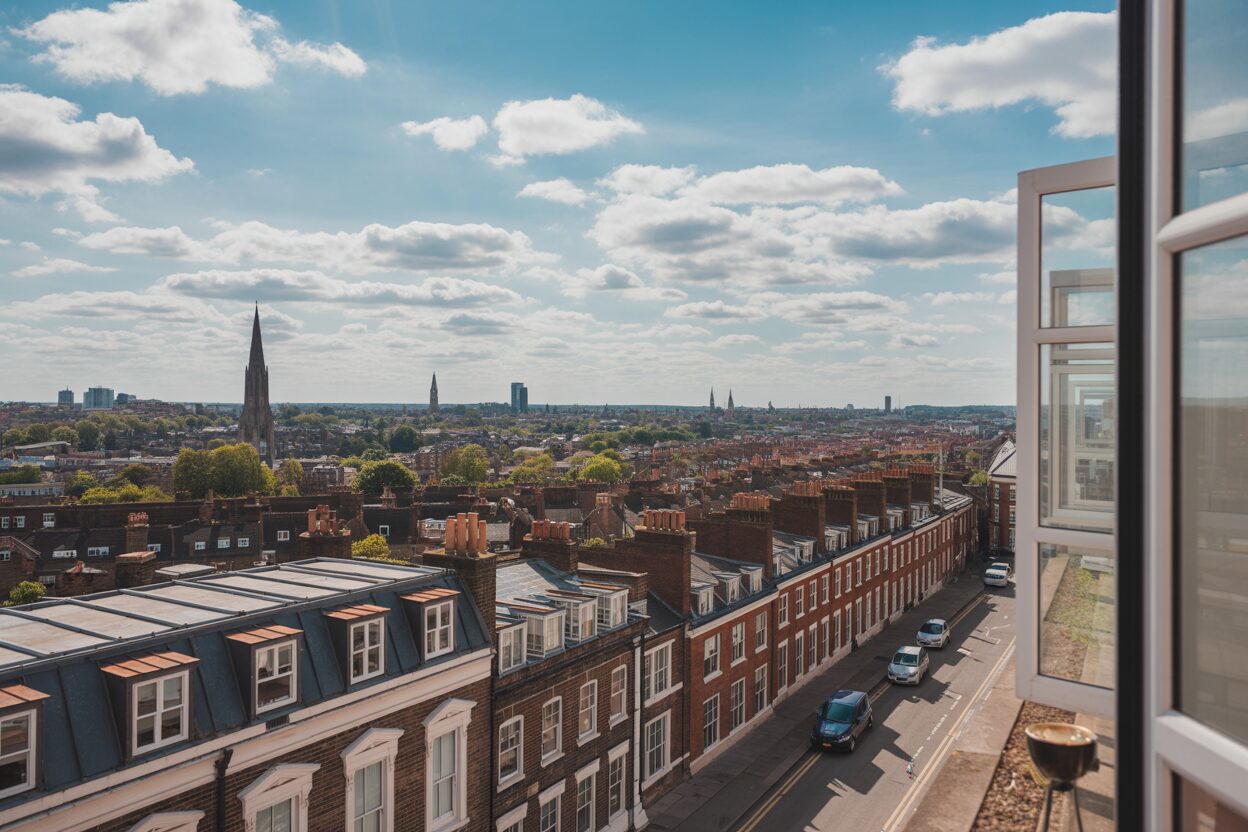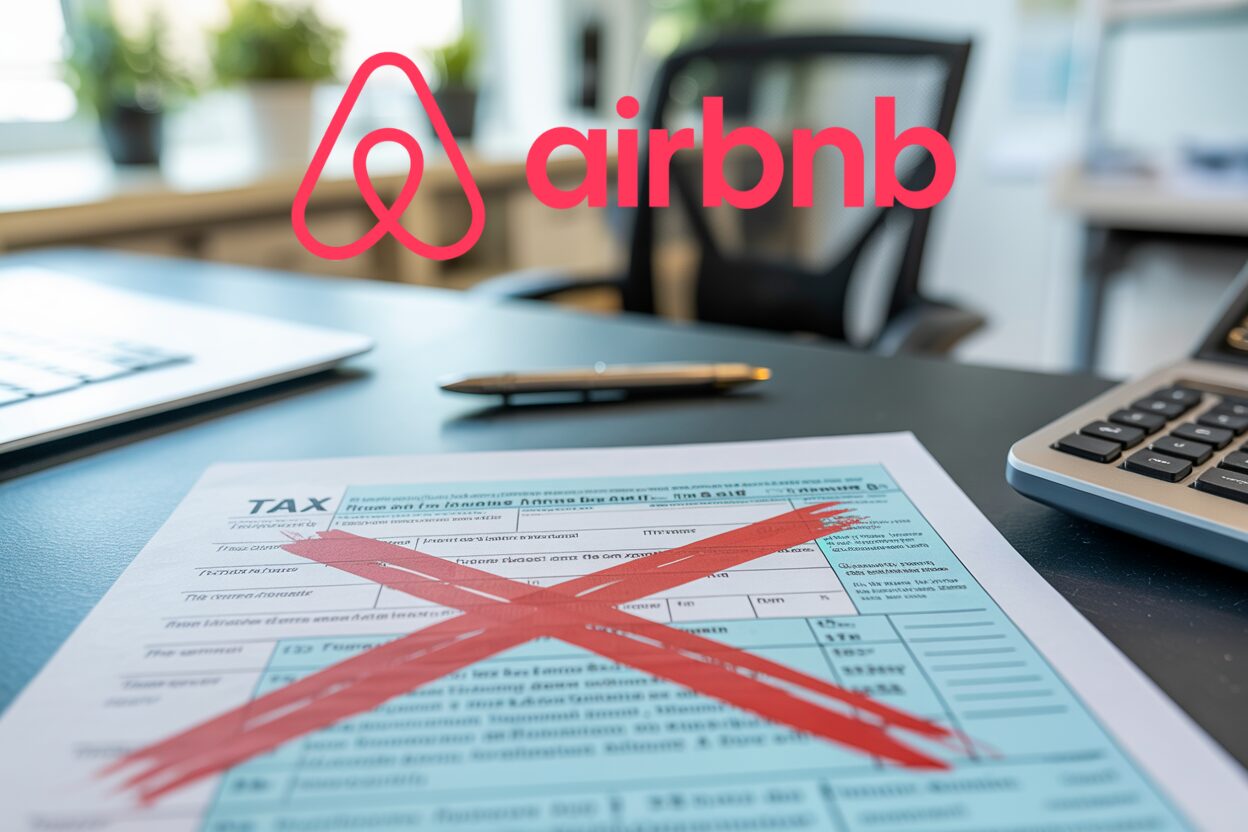
On average, each holiday let generated an average daily rate of £311 and monthly revenue of more than £3,400.There were 90.1m guest nights in UK short-term lets in 2024.The number of short-term let properties in the UK jumped 19% year-on-year to 342,000 with listings up 22%. Returns on Airbnb and holiday lets compare well with HMOs and buy-to-lets. Given the high demand and impressive yields, it’s no surprise that more investors want to know how to start an Airbnb business in the UK.
This is an article for new and experienced investors on starting an Airbnb business. But it’s not your typical “how-to” guide for someone looking for a side hustle. We understand you’re busy and you may not have time to manage the day-to-day yourself.
We show you how to buy, fund and, if needed, renovate a holiday let property. Then, we explain how to hand the finished property over to a management company to handle the bookings, guests and compliance for you.
Choosing an Airbnb property to buy
Choosing an Airbnb property that returns the highest possible return on your investment comes down to two decisions. First, location and the market you’re targeting. And second, whether you buy a turnkey property or one you need to renovate.
First, the types of client you target will be more likely to choose certain destinations. They’ll also have certain expectations about the property.
Let’s examine nine of the main target audiences Airbnb hosts generally cater to:
| Target market | Guests will expect… | Potential UK locations |
| Bleisure (business and leisure) | 1–2 beds, work desk, fast broadband, air conditioning, blackout blinds, late self check-in, day pass for nearby gym | London Zones 1–2, Manchester, Birmingham, Leeds, Bristol, Edinburgh |
| Luxury | Wow feature like a great view or a hot tub, stylish interior design, privacy, safe off-street parking, outdoor space, luxurious bedding, bathroom and kitchen, smart home devices | Cotswolds, Lake District, Bath, Cornwall, Scottish Highlands |
| Families | 2–3 beds, cot or high-chair, washer-dryer, bath, child-safe garde, parking, quiet street near local sights or the beach | Cornwall, Dorset, North Norfolk, North Wales, Lake District, Lincolnshire, Dumfries & Galloway |
| Contractor/NHS | 3–4 separate beds, strong Wi-Fi, desks, weekly cleans, driveway or easy parking, flexible check-in, good transport links | Near major hospitals and industrial parks in major cities |
| Couples city-break | Stylish king bed, great shower, soundproofed, walkable to local shops, restaurants and town centres, tram/underground stop close by, late check-in | York, Bath, Edinburgh, Cambridge, Brighton, Glasgow, Newcastle, Manchester, Liverpool, Sheffield, Leeds |
| Outdoor weekender | Boot room, washer-dryer, pet-friendly, parking, trail access, hot tub | Peak District, Snowdonia, Yorkshire Dales, Brecon Beacons, lakes or lochs, Northumberland |
| Events & arenas | Flexible sleeping, sofa-bed option, soundproofing, parking, quick connection to venue, late check-in | Manchester AO Arena, London O2, ExCeL, Birmingham Utilita, Glasgow OVO Hydro, Liverpool M&S Bank Arena |
| Remote worker (28+ nights) | Dedicated workspace, ergonomic chair, fast broadband, 100+ Mbps, fully-equipped kitchen, quiet, weekly clean, long-stay discounts | Areas where employers use large external workforces |
| Stag & hen groups | Multiple bedrooms and bathrooms, big social space, strong house rules, noise monitoring, parking, late self check-in, pluses include a hot tub, garden or balcony | Newcastle, Liverpool, Manchester, Leeds, Bristol, Nottingham, Brighton, Bournemouth, Edinburgh, Blackpool |
Before settling on a location, check the local council’s existing and proposed rules on short-term lets and licensing. They vary between regions but a quick summary is:
- England: The previous Sunak government sought consultation on a licensing scheme and national registration of short-term lets. This will mean some areas may require planning permission if the law comes into effect.
To pay business rates and not council tax, your property must be available to let for 140 days and actually let for 70 days per year or you’ll pay council tax. Some councils can charge an additional 100% on council tax payments.
Finally, in Greater London, you can only let out an entire property for a maximum of 90 nights per calendar year without needing to apply for planning permission. - Scotland: Every short-term let in Scotland needs a licence. In certain areas, like the city of Edinburgh, you need to apply for planning permission to convert a home into a short-term let.
- Wales: Wales has introduced new planning use classes (C3 for a main home, C5 for a second home and C6 for a short-term let) and councils (like Gwynedd) can require planning permission to change between them.
To qualify for business rates in Wales, your property must be available for 252 days and actually let for 182 days per year. Any less and they qualify for council tax. Some Welsh councils, like Pembrokeshire, can charge council tax at up to 300% higher rates on second homes and holiday homes. - Northern Ireland: All tourist accommodation must be certified by Tourism NI, which involves an inspection every four years.
Once you’ve settled on a location and you’re happy with the local rules, now look for local demand hotspots.
Tools like AirDNA help you find areas within your target location with high local occupancy and average daily revenue rates. Target high-demand neighbourhoods where you may be able to charge more for accommodation and have a better chance of securing off-peak bookings.
Next, weigh up whether to buy a turnkey property or a renovation property you can transform into serviced accommodation.
Turnkey property or doer-upper for your Airbnb?
You have two choices when deciding on an Airbnb property for your portfolio. First, turnkey properties. These are homes that are ready to let with little or no work needed. They mean faster income, less risk and lower chance of unexpected expenses. Second, doer-uppers. These are properties that may need significant renovation to bring them up to the standards your guests expect. Doer-uppers are cheaper and you can add more value to both the resale price and the rental yield. But they require a lot of work and will tie up your capital for months with no rental return until the property is ready to let.
Here’s how both approaches compare:
When a turnkey wins
Turnkeys are more suitable if you want a less complex investment. Look for properties in really good condition that need little more than furnishing and compliance checking.
The key advantages of a turnkey property are:
- Faster launch: You can advertise on them Airbnb listings and other short-stay platforms within weeks.
- Easier finance: Although the application process for bridging loans and development finance is shorter, securing a holiday-let mortgage is more straightforward when the property is already finished or nearly finished.
- Known condition: Your starting point is a habitable home and not a building site. This only leaves you to handle EPCs, safety checks and licensing.
- Low expenditure: The cost of minor fit-outs and furniture is far less than a complex refurb or conversion.
When a doer-upper wins
Properties that are derelict, unmortgageable or tired and rundown present an opportunity. You can spec them exactly to guest expectations with higher-end finishes or added amenities. This can move them into a higher rental bracket and add greater to their future resale value.
You can also reconfigure or convert properties to widen your market. While other landlords focus on holiday-makers, you can broaden your horizons to long-stay guests and specialist markets. For example, you could turn a single home into an HMO or flats to appeal to groups of contractors like construction workers and NHS staff. This is an increasingly important part of the short-stay rental market.
Doer-upper: worked examples
It takes time to complete a doer-upper project. So, let’s run the numbers to see when the higher income and resale value might justify the extra costs and delays.
Before we do, a few caveats. We’re assuming, in these worked examples, that the developer:
- Carries out the work off-season, aiming to finish 4-6 weeks before peak.
- Has all the necessary consents in place, including holiday-let planning permission, building control, short-term licensing and lender’s.
Let’s assume a developer has these two options to choose from with a tired two-bed flat:
| Example 1 | Example 2 | |
| Description of work | Add an extra bedroom, new mid-range kitchen and bathroom, paint throughout, new furniture | Paint throughout, replace worn carpets, refresh kitchen fronts and worktops, tidy-up of bathroom, deep clean |
| Time taken | 8 weeks | 4 weeks |
| Net rental per year before work | £18,000 | £18,000 |
| Net rental per year after work | £33,000 | £21,000 |
| Extra net profit per year | £15,000 | £3,000 |
| Amount spent on works | £27,500 | £8,000 |
| Financing costs | £1,500 | £400 |
| Missed income* | £3,000 | £1,500 |
| Approximate payback time (pre-tax) | 22 months | 2 years 8 months |
| Additional profit after 5 years | £43,000 | £5,100 |
Both these projects add value but the larger job clearly delivers a faster payback time and much higher long-term profits.
It’s a commercial decision for you but, when deciding on how to approach a doer-upper, come up with alternative scenarios. Compare each scenario against your capital and risk appetite and then choose the route that best matches your property investment strategy.
[Related article: Converting A Church To An Airbnb? (Innovative Ideas For A Unique Experience)]
How to finance your Airbnb holiday let purchase
There are four main sources of finance for your Airbnb holiday let purchase:
- For habitable and mortgagable properties, arrange a holiday let mortgage.
- For properties that only need cosmetic work like decorating or a new kitchen, apply for a light refurbishment bridge loan.
- For properties that need a lot of improvement or structural changes, go for a heavy refurbishment loan.
- Development loans can be the best choice if you need capital to finance a purchase and construction costs, like a major conversion project.
Let’s look more in-depth at each option.
Holiday-let mortgages: definition
Holiday-let mortgages are long-term loans secured on property you intend to rent out to short-term guests. You can’t use a standard buy-to-let mortgage to purchase Airbnb and holiday cottages.
Key facts on holiday-let mortgages are:
- Specialist product: You won’t find these mortgages at most high street banks. Instead, try building societies and independent mortgage brokers.
- Large deposit: You’ll typically need a deposit of between 25% and 35% of the property’s value.
- Higher interest rates: Expect to pay higher interest rates and fees than for a standard mortgage.
- Strict income test: Lenders will want proof that the rental income will be around 125-145% of the mortgage payments.
Light refurbishment bridging loans: definition
Light refurbishment bridging loans are short-term loans used to buy and refurbish property. Lenders secure the loan on the property you purchase. You should not use these loans to carry out major property conversions or major structural alterations.
Key facts on light refurb bridging loans are:
- Suitable for: Painting, decorating, refreshes (not refits), repairs, new fixtures and fittings, boilers, landscaping, and so on
- Payment schedule: You can get to buy the property straight away and then lenders pay build costs in staged drawdowns when you achieve agreed project milestones.
- Amount you can borrow: Up to 65% of the current property value and up to 100% of the build costs
- Maximum loan term: Up to 24 months
Heavy refurbishment bridging loans: definition
Heavy refurbishment bridging loans are short-term secured loans to buy and redevelop or convert land or property. They are not intended for use on properties that only need minor cosmetic work or light repairs.
Key facts on heavy refurb bridging loans are:
- Suitable for: full kitchen/bathroom refits, conversions (e.g. commercial to HMO), adding/removing walls, roof replacements, foundation repairs, and so on.
- Payment schedule: You receive capital to pay for the property immediately. Lenders pay build cost in stages at agreed milestone stages.
- Amount you can borrow: Up to 65% of the current property value and up to 100% of the build costs
- Maximum loan term: Up to 24 months
Property development finance: definition
Property development finance is short-term, secured finance used to fund more complex construction projects. Developers use them to purchase land or property. Loans also fund build costs, from extensive renovation and remodelling to changes of use.
Key facts on property development finance are:
- Suitable for: demolitions followed by new builds, ground-up schemes, large-scale conversions, changing the use of a property, new builds on empty land and so on.
- Payment schedule: The lender advances you the capital to purchase the land and/or property. They then release the build costs in stages upon hitting pre-agreed milestones.
- Amount you can borrow: Either up to 70% of the value of the property after completion or up to 90% of the purchase and build costs, whichever is the lower.
- Maximum loan term: Up to 24 months
Repaying bridging loans and property development finance
With the holiday-let mortgage, you make monthly repayments, just as with standard residential and buy-to-let mortgages. With bridging loans and property development loans, you repay the amount you borrowed plus accumulated interest in one go when you complete your project.
Investors and developers make repayment by either:
- Selling the property and using the money from the sale.
- Renting out the property and repaying the loan with a new, long-term holiday-let mortgage. Remember that lenders insist on an up to 125-145% rental coverage.
Appointing a holiday let management company
Once your vacation property is ready, the final step is to hire a management company to run it for you. By handing day-to-day tasks over to them, you turn each venue into a reliable, hands-off income stream that requires minimal oversight and intervention.
In larger cities, you can find one-stop shop providers that offer a wide range of support services to holiday let landlords. They essentially act as a “responsible host” on your behalf.
These full-service firms offer some or all of the following:
- Marketing services: They’ll create a professional property listing for Airbnb and other sites that highlight unique selling points like closeness to local attractions. They will also make your listing stand out by using high-quality photos. When potential guests get in touch to make an enquiry, they’ll handle the communication on your behalf.
- Pricing strategy: Many agents set dynamic pricing to attract guests and secure more bookings. Dynamic pricing is when your nightly rate changes automatically based on demand, season or events in the local area.
- Guest management: They make sure guests follow all your house rules, including how many guests can stay at one time. They’re responsible for welcoming guests on their arrival. They often also send follow up emails to solicit positive reviews.
- Operational: They take care of laundry and cleaning between stays. They often outsource to clean contractors, paying cleaning fees to them and passing the charge onto you. They also ensure the fire extinguishers, carbon monoxide detectors and smoke alarms in your property still work.
In more rural areas, you may need to hire a national agent to manage your bookings and individual local suppliers for cleaning and maintenance.
Compliance and safety
Your management agent will assist you with compliance. But, as the owner, it remains your legal responsibility to make sure the property meets all legal and safety standards.
An agent can help you arrange safety checks and conduct risk assessments. If they fail in their duties and you no longer comply with local laws or local authority regulations, then you are still held liable as the property owner.
Management fees and charges
Management companies will charge you between 12% and 25% of your booking revenues. Other charges to watch out for include:
- Onboarding fees for professional photos and creating the listing
- Per-stay charges for cleaning and laundry
- Maintenance call-out fees for any repairs
- Replenishment costs for supplies like toiletries and welcome packs
HMO Architects: build your holiday let portfolio with us
You’ve seen, in this article, how to start an Airbnb business as an investor. The vacation rental market is booming in the UK and there is a real opportunity for investors and developers to build a significant passive income stream.
All you need is to start off with the right property. That’s where HMO Architects can help.
We’ve worked with 750 investors and developers to realise their property projects. Our team has worked with over 200 councils, securing the planning permission our clients need. They understand local laws and how planning restrictions differ across regions.
We’re not an Airbnb management company. We leave listing details and other operational details to the experts. But the areas we excel in are:
- Feasibility studies: Seen a single property you want to turn into a holiday let? Let us know the details and we’ll assess its viability as a potential income stream for you.
- Architectural services: Let our team of architects, with extensive holiday let experience, design layouts that maximise space, guest comfort and rental yield.
Interior design: Balance aesthetics and durability to create stylish spaces that attract bookings while standing up to heavy guest use. - On-site management: We can act as your Building Regulations Principal Designer (where required) to keep your holiday let project on track.
- Professional network: Access a range of brokers, lenders, surveyors and other experts to deliver your project on time and within budget.
Ryan Windsor, our co-founder, will lead the team assisting you. Since the age of 17, he has worked on over 2,200 projects and built his own extensive property portfolio.
View our range of development finance case studies to see how we’ve helped clients turn their ideas into sound investments. Read customer stories on HMO, flat, holiday let and housing projects.
Call our experienced team on 01223 776 997 or email us to start your successful Airbnb business.
Frequently asked questions
How much do I need to start an Airbnb business?
To start Airbnb hosting, you’ll need a property or room to rent out. Airbnb connects hosts with travellers and holiday makers so you’ll need to list your space on their site. That space could be a spare room in your property although demand for stays in spaces that aren’t entire houses or apartments is falling. If you don’t have a space to rent, you could consider a rent-to-rent model, a co host, or an arbitrage model. The other alternative is to buy property and let it out. For that, you’ll need a deposit and a fund to bring it up to the safety and comfort standards guests expect.
What do I need before I can start Airbnb hosting in the UK?
You need an Airbnb account to earn extra income from any property rental space you advertise on the Airbnb website and other short-let platforms. You should also check for local letting restrictions, like those in London and Northern Ireland, to ensure you run your short term rental business legally. If you’re running it as your own business, then make sure you register with HMRC. For tax purposes, it may be better to create a separate business account and have Airbnb make bank transfers to that account.
What tax obligations and fees apply to Airbnb hosts?
There are certain tax obligations that apply to an Airbnb business. If your takings pass £85,000, you’ll also register for VAT. Earn above a certain threshold and you must declare income and pay income tax to HMRC. You can deduce Airbnb fees and service fees charged to you by contractors from your profit figures. If you’re renting out a spare room in your home, you may qualify for tax reliefs like the Rent a Room relief. This does not apply however if you rent your entire house out.
How does the rent-to-rent model work in practice?
Rent-to-rent is an option for people who wish to make money and achieve financial freedom without having to buy new property or rent out space in their primary residential home. You lease an entire property from a landlord, taking care of everything from repairs to marketing. You then share the profits afterwards. It is a complicated business and success depends on many factors. You juggle many hats from being an advertising manager to a co host and property manager and you have to keep on top of everything.
What do most hosts provide to attract Airbnb guests?
Hosts who are most successful at attracting Airbnb guests choose the right property for their target audience. They create appealing shared spaces or private rooms for their guests. If you want to appeal to a family audience, provide an entire house for them to stay in with features like a large dining table, free parking, smart locks and shared rooms the children can sleep in. Most hosts appreciate the importance of providing a great experience to get more positive guest reviews. The more positive the feedback, your property will be in high demand and generate more bookings.
How should I plan for the long-term hosting journey?
Your hosting journey should begin with choosing the audience you want to appeal to and selecting the property type they want to stay in. Make each guest’s stay as memorable and enjoyable as possible and build a steady flow of positive reviews to secure long-term demand.
Ryan Windsor, Development Director and co-founder of HMO Architect, brings over 15 years of specialised experience in HMO development to the table. Having consulted on nearly 2,200 projects, Ryan is a highly seasoned HMO landlord with a vast and influential property network. He began his real estate journey at just 17, rapidly amassing a wealth of experience that sets him apart in the industry. Beyond his professional successes, Ryan is passionately dedicated to giving back, leading numerous charitable initiatives that make a meaningful impact on local communities.




